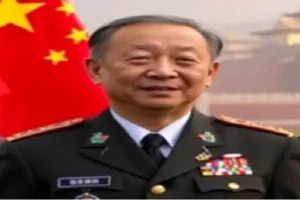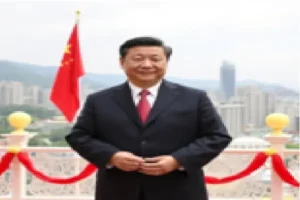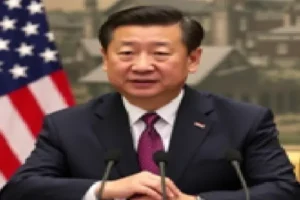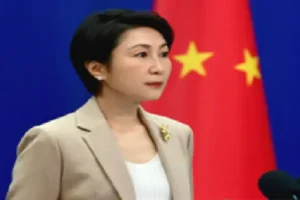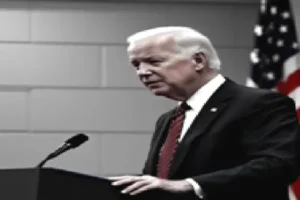“China Rejects US Criticism of ‘One Country, Two Systems.”
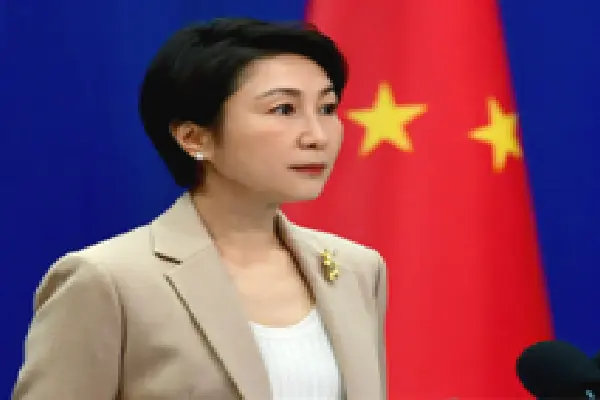
In a pointed response to the 2024 Annual Report published by the US Congressional-Executive Commission on China (CECC), which accused the Chinese government of intensifying its interference in the internal affairs of the Hong Kong and Macao Special Administrative Regions (SARs), Mao Ning, a spokesperson for China’s Ministry of Foreign Affairs, vehemently rejected the allegations. The report, which claimed that Beijing’s actions have undermined the “One Country, Two Systems” principle, was swiftly condemned by the Chinese government as politically motivated and devoid of any factual basis.
CECC’s Reports Lacking Credibility.
Mao Ning’s response came on Monday, as she underscored that the CECC has consistently launched baseless attacks against China with the sole aim of furthering its political agenda. She emphasized that the commission’s annual reports are nothing more than attempts to smear the reputation of the Chinese government and misrepresent the human rights conditions in Hong Kong and Macao. According to Mao, the CECC’s relentless efforts to tarnish the image of China, year after year, have become predictable and lacking in credibility. The Chinese government, she reiterated, stands firmly opposed to such slanderous narratives.
China’s Discontent with CECC’s Portrayal.
In her statement, Mao expressed China’s deep dissatisfaction with the CECC’s portrayal of the human rights situation in the two regions. She noted that the commission’s claims regarding the erosion of the “One Country, Two Systems” framework are misleading and fail to recognize the tremendous progress made in both Hong Kong and Macao since their return to Chinese sovereignty. Mao firmly asserted that the “One Country, Two Systems” policy has, in fact, continued to evolve and improve, contributing significantly to the regions’ economic and social development. This progress, she argued, demonstrates the resilience and strength of the system, which has been instrumental in ensuring the long-term stability and prosperity of Hong Kong and Macao.
Rights and Freedoms Protected Under Policy.
The spokesperson further elaborated that the rights and freedoms of the people in Hong Kong and Macao have been fully protected under the “One Country, Two Systems” principle. Over the years, the citizens of both regions have witnessed a marked improvement in their quality of life, with a significant increase in their sense of fulfillment, happiness, and security. This positive transformation is a direct result of the successful implementation of the policy, which has provided the foundation for sustained economic growth and social harmony.
Institutional Strength of ‘One Country, Two Systems’.
Mao emphasized that the “One Country, Two Systems” framework has demonstrated remarkable institutional advantages and vitality. She argued that it is a system that not only ensures the prosperity and stability of Hong Kong and Macao but also plays a crucial role in the broader goal of national rejuvenation. By maintaining a harmonious coexistence between different social systems, the policy fosters mutual respect and cooperation, which, in turn, supports China’s vision of achieving long-term peace and development.
Central Government’s Unwavering Support.
In her remarks, Mao also highlighted the significance of the unwavering support provided by the central government, which has been instrumental in ensuring the success of the “One Country, Two Systems” framework. She pointed out that the Chinese government’s consistent backing has enabled Hong Kong and Macao to continue thriving under the unique arrangement, allowing the regions to retain a high degree of autonomy while benefiting from the stability and strength of the broader Chinese nation. This collaborative effort, Mao stressed, has been vital to the ongoing success of the policy and will continue to drive the regions forward in the future.
Collaboration Ensures Future Prosperity.
Mao’s statement also acknowledged the collective efforts of various sectors within Hong Kong and Macao, which have played a pivotal role in the successful implementation of the “One Country, Two Systems” principle. The cooperation between the central government and local authorities, as well as the active participation of citizens in both regions, has contributed to the steady and sustainable progress of the policy. With these continued efforts, Mao expressed confidence that Hong Kong and Macao will continue to flourish and shine even more brightly in the years to come.
Commitment to Long-Term Stability and Growth.
In conclusion, Mao Ning reiterated China’s steadfast commitment to the “One Country, Two Systems” principle, emphasizing that it is a policy that has proven its worth and will remain a cornerstone of China’s governance for the foreseeable future. The Chinese government, she asserted, will continue to uphold the integrity of the system and ensure that Hong Kong and Macao remain stable, prosperous, and secure. Despite the attempts by external forces to undermine the policy, China will remain resolute in its pursuit of national unity and the realization of the Chinese Dream.
A Vision for Hong Kong and Macao’s Future.
As the global community watches closely, the Chinese government’s position on “One Country, Two Systems” remains clear: it is a policy that will endure, evolve, and continue to contribute to the long-term prosperity of both Hong Kong and Macao, as well as the entire nation.
Read this also.
“China-US Military Relations: Challenges and Insights.”

